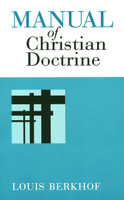
The Doctrine of the Christian Life (Frame)
The third volume of Frame’s Theology of Lordship series, this book focuses on biblical ethics, presenting a method for ethical decision-making, an analysis of biblical ethical teaching focusing on the Ten Commandments, and a discussion of the relation of Christ to human culture.
Table of Contents:
Part One: Introductory Considerations
1. Introduction
2. An Ethical Glossary
3. Ethics and Divine Lordship
Part Two: Non-Christian Ethics
4. Lordship and Non-Christian Ethics
5. Ethics and the World’s Religions
6. The Existential Tradition
7. The Teleological Tradition
8. The Deontological Tradition
Part Three: Christian Ethical Methodology
Section One: The Normative Perspective
9. The Organism of Revelation
10. Attributes of Scripture
11. The Sufficiency of Scripture
12. Law in Biblical Ethics
13. Applying the Law
Section Two: The Situational Perspective
14. Situation and Norm
15. Our Ethical Situation
16. Redemptive History
17. Our Chief End
Section Three: The Existential Perspective
18. Goodness and Being
19. Motives and Virtues
20. The New Life as a Source of Ethical Knowledge
21. The Organs of Ethical Knowledge
Part Four: The Ten Commandments
22. Introduction to the Decalogue
23. The First Commandment: No Other Gods
24. The First Commandment: Contemporary Issues
25. The Second Commandment: Prohibited Images
26. The Second Commandment: Regulating Worship
27. The Third Commandment: Reverence for God’s Name
28. The Fourth Commandment: Views of Sabbath Keeping
29. The Fourth Commandment: Theology of the Sabbath
30. The Fourth Commandment: The Sabbath in the New Covenant
31. The Fifth Commandment: Honoring Authorities
32. The Fifth Commandment: Family, Church, and State
33. The Fifth Commandment: Man and Woman
34. The Fifth Commandment: Equalities, Racial and Otherwise
35. The Sixth Commandment: War and Punishment
36. The Sixth Commandment: Protecting Life
38. The Seventh Commandment: Sexual Purity
39. The Seventh Commandment: Divorce and Remarriage
40. The Seventh Commandment: Reproduction
41. The Eighth Commandment: Respecting Property
42. The Eighth Commandment: Wealth and Poverty
43. The Ninth Commandment: Truthfulness
44. The Tenth Commandment: The Desires of the Heart
Part Five: Christ and Culture
45. What Is Culture?
46. Christ and Culture
47. Christ and Our Culture
48. Christians in Our Culture
49. Culture in the Church
Part Six: Personal Spiritual Maturity
50. Growing in Grace
Appendix A: Ethics and Biblical Events
Appendix B: Zwingli and Reformed Ethics
Appendix C: Schleiermacher and Protestant Ethics
Appendix D: Gentleness in the Pastorate
Appendix E: In Defense of Christian Activism
Appendix F: Is Natural Revelation Sufficient to Govern Culture?
Appendix G: Review of R.J. Rushdoony, The Institutes of Biblical Law
Appendix H: Review of Peter Richardson, Paul’s Ethic of Freedom
Appendix I: Review of Margaret Howe, Women in Church Leadership
Appendix J: Review of Hessel Bouma III et al., Christian Faith, Health, and Medical Practice
Appendix K: Review of R.F.R. Gardner, Abortion: The Personal Dilemma
Appendix L: Review of Beverly Wildung Harrison, Our Right to Choose: Toward a New Ethic of Abortion
Author
John M. Frame (B.D., Westminster Theological Seminary; A.M. and M.Phil., Yale University; D.D., Belhaven College) is professor of systematic theology and philosophy at Reformed Theological Seminary, Orlando campus. He previously taught theology and apologetics at Westminster Theological Seminary (Philadelphia) and at Westminster Seminary California. Frame’s published works include The Doctrine of the Knowledge of God and The Doctrine of God in the Theology of Lordship series, as well as Apologetics to the Glory of God, No Other God: A Response to Open Theism, Cornelius Van Til: An Analysis of His Thought, and Salvation Belongs to the Lord.
Endorsements
“This book is a landmark in its field because of its soundness and thoroughness. It is noteworthy for its careful attention to the biblical basis for ethical instruction, its use of the Bible in its details, its attention to non-Christian ethical systems, its discussion of a wide range of issues, and its sensitivity to the multidimensional demands of the Christian life.” — Vern S. Poythress
“Frame sets forth God’s commandments as broad and deep, as sweetly adaptable to the varieties of human experience. He shows how the person, promises, and actions of our redeemer God are always intrinsic to our wisdom, faith, and love. He sets forth a vision for the Christian life that, in fact, glorifies the God of glory.” — David Powlison
“‘Classic Frame’ at his best: profound in analysis and clear in articulation, rigorously biblical while engaging issues in the contemporary church and culture, irenic and occasionally controversial, philosophical and pastoral, deeply grounded in Reformation and post-Reformation Calvinism. . . . a rich resource for pastors, elders, counselors, and others who offer guidance in ethical decision making.” — Dennis E. Johnson
“Reflects all the characteristics we have come to expect from John Frame: passion for clarity and lucid explanations; boldness in addressing relevant and controversial topics; refusal to capitulate to ideologies, whether Left or Right; commitment to the highest standards of scholarship; and, most importantly, zealous fidelity to Scripture as the infallible source of ethical norms.” — P. Andrew Sandlin
“John Frame is one of the greatest teachers of ethics in the world. His magnificent work on the Christian life fully endorses the authority of Scripture and practically addresses the situations and people involved in ethical decisions. Istrongly recommend this book as a text for serious students of ethics and for every layperson who wants to know how to make decisions pleasing to God.” — Richard L. Pratt Jr.





